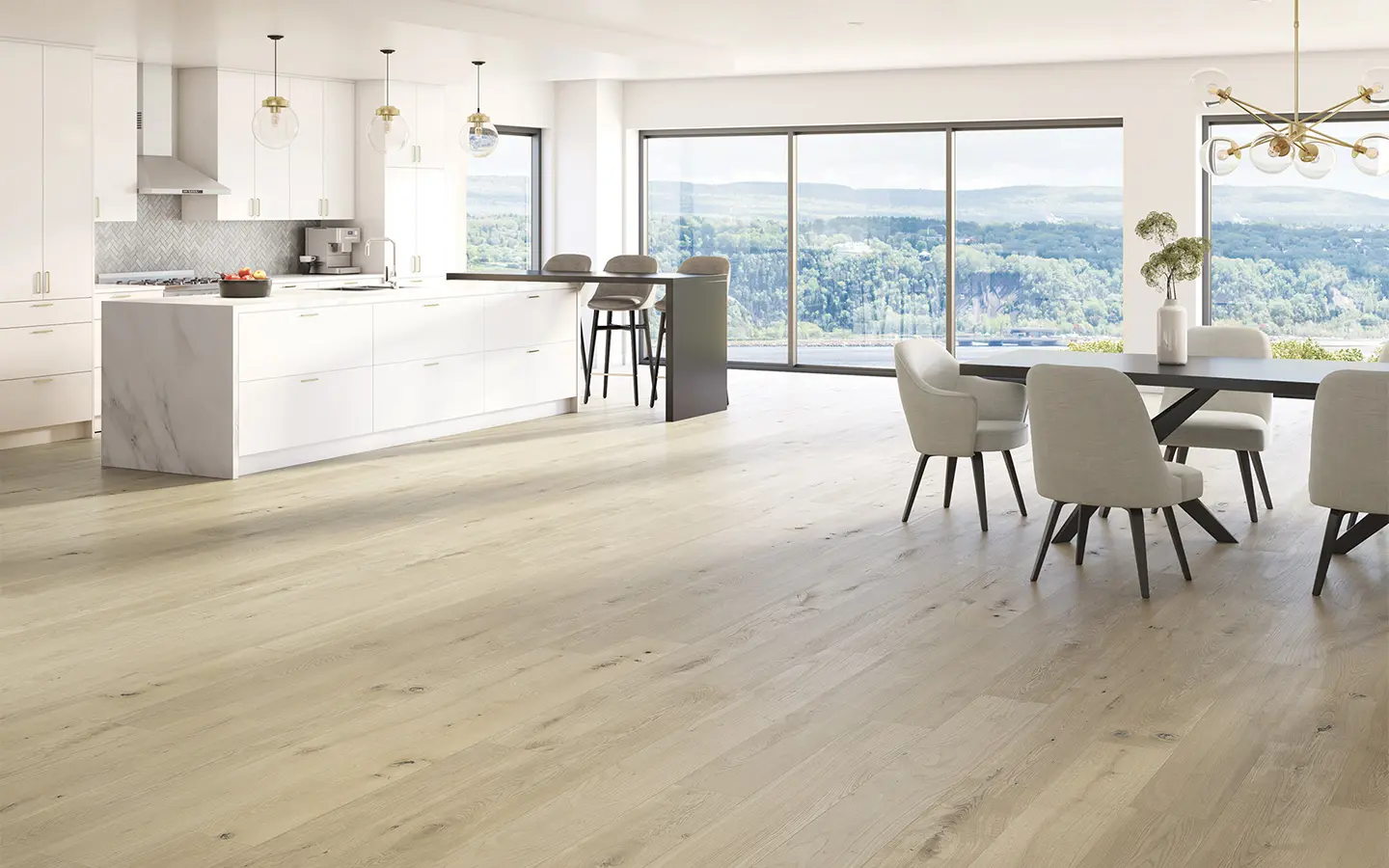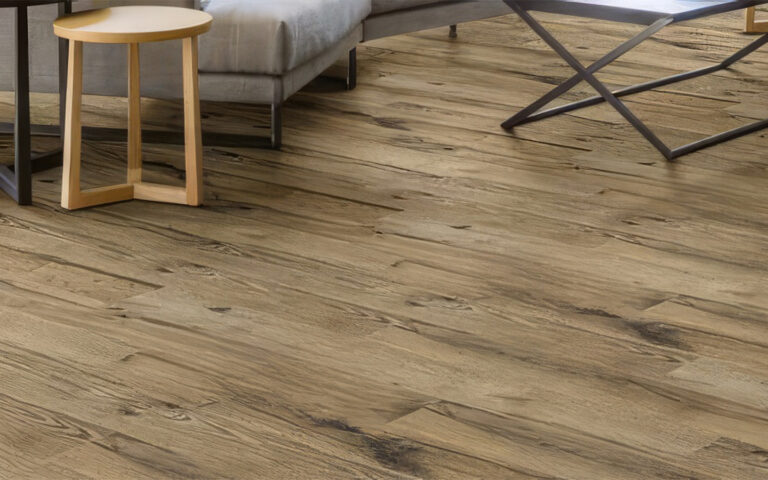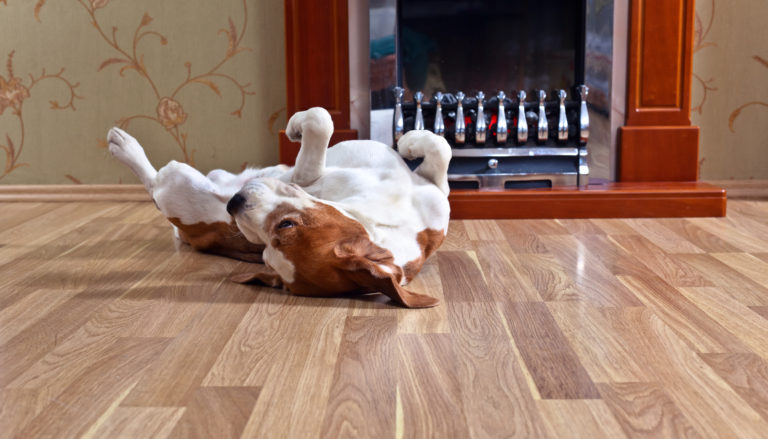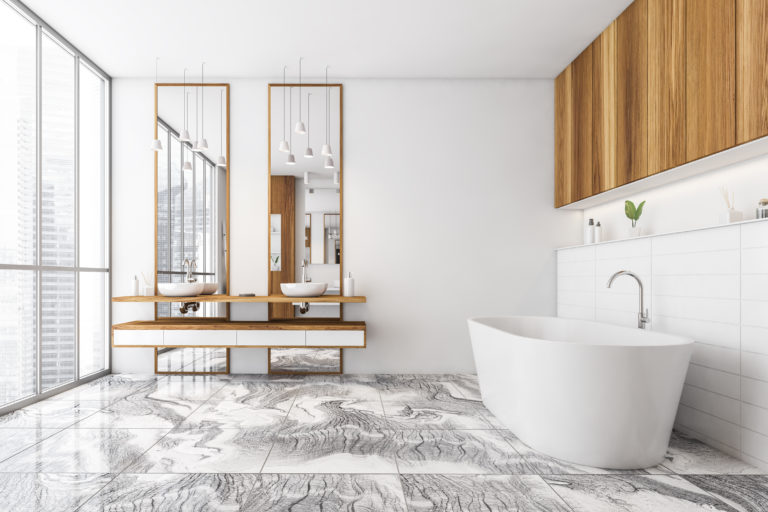If you’ve ever found yourself wandering the aisles of a flooring showroom or scrolling through pages of flooring options online, chances are you’ve encountered the term “LVT flooring” and wondered, “What is LVT flooring?”
You’re not alone!
We’re going to demystify this popular flooring option today, breaking down the LVT flooring meaning and exploring why it might just be the perfect choice for your next home or office makeover.
What Does LVT Stand For in Flooring?
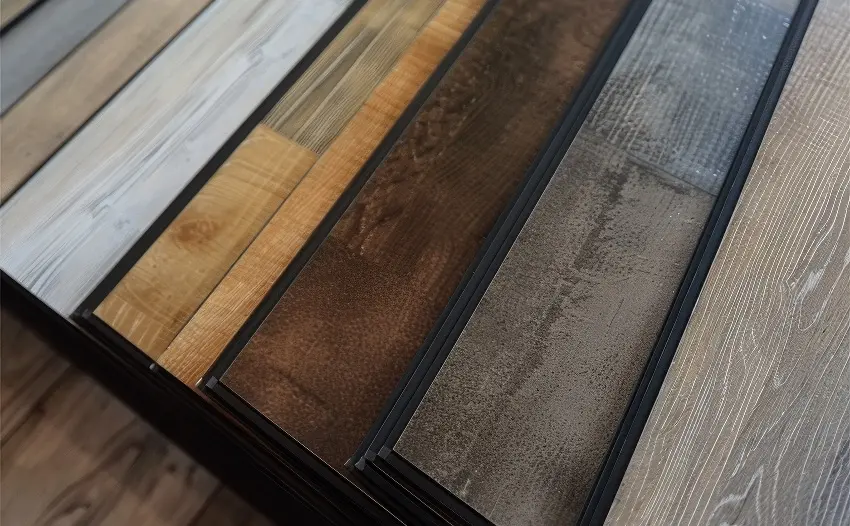
First things first, let’s tackle the basics. LVT stands for Luxury Vinyl Tile.
But don’t let the word “vinyl” fool you—this is not the vinyl flooring of the past. LVT is a revolutionary flooring solution that combines the best of design, technology, and performance.
Imagine a flooring option that offers the warm, inviting look of hardwood or the cool, refined appearance of stone, but without the headaches of installation, maintenance, or cost.
That’s LVT in a nutshell.
The Evolution of LVT Flooring
Gone are the days when vinyl flooring was synonymous with cheap, unattractive options.
LVT has transformed the game, offering an array of designs that can mimic the look and feel of natural materials like wood, stone, and ceramic tile, without the hefty price tag or maintenance woes.
This evolution means that opting for LVT no longer requires compromising on style for the sake of durability.
Best Brands of 2024
Why Choose LVT?
You might be wondering, “What is LVT flooring good for?” Well, the answer is pretty much everything! Here’s why LVT is a fantastic choice for various spaces:
Durability
Designed to withstand high traffic, spills, and impacts, LVT is the superhero of the flooring world. Its wear layer offers protection against scratches, making it ideal for busy households and commercial spaces.
Easy Maintenance
Say goodbye to arduous cleaning routines. LVT flooring is known for its ease of maintenance. Regular sweeping and occasional mopping are all it takes to keep your floors looking brand new.
Water Resistance
Unlike traditional hardwood or laminate, LVT offers excellent water resistance, making it a suitable option for kitchens, bathrooms, and basements.
Comfort and Warmth
LVT flooring feels softer underfoot compared to hard surfaces like stone or ceramic tiles. It also does a better job at retaining warmth, adding a cozy touch to any room.
Installation Flexibility
Wondering about the installation? LVT comes with various installation methods, including glue-down and click-lock systems, making it adaptable to different subfloors and DIY-friendly.
Style for Days
With LVT, the design possibilities are endless. Whether you’re looking for a rustic wood look, a sleek marble effect, or anything in between, LVT has you covered.
How to Choose the Right LVT Flooring
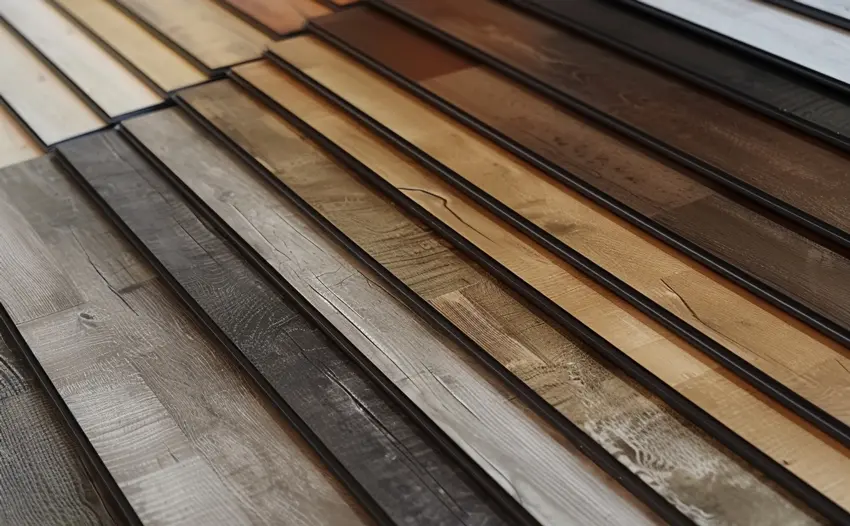
Choosing the right LVT flooring for your space involves considering several factors, such as the area’s foot traffic, moisture levels, and your stylistic preferences.
Here are a few tips to guide you:
- Consider the Wear Layer: The thicker the wear layer, the more durable the flooring. For high-traffic areas, opt for a wear layer of 20 mils or more.
- Look for Warranty: A good warranty can be a testament to the flooring’s quality and durability. Look for products with at least a 15-year residential warranty.
- Match Your Style: With countless design options available, select an LVT that complements your home’s aesthetic and meets your personal style.
LVT Flooring: The Eco-Friendly Choice
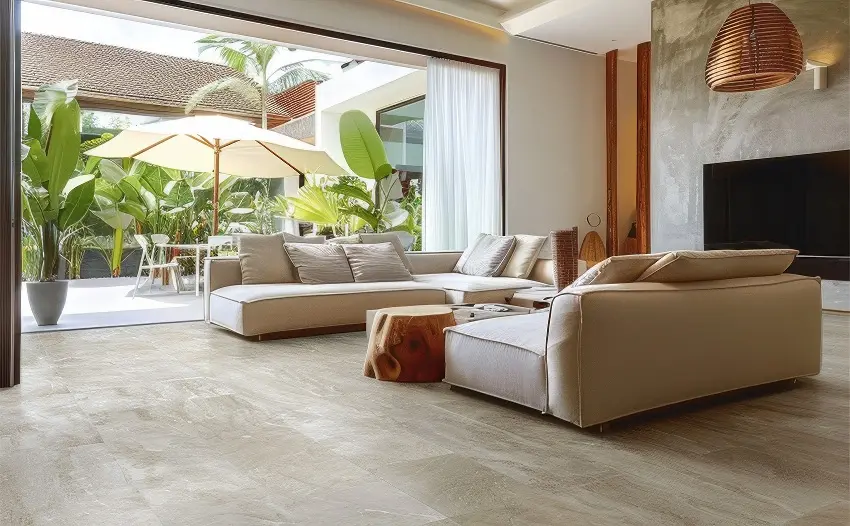
As we become more conscious of our environmental footprint, it’s worth noting that many LVT options are made from recycled materials and are fully recyclable themselves. This makes LVT a more sustainable flooring option for those looking to make eco-friendly choices.
Wrapping It Up
So, what is LVT flooring? It’s a versatile, durable, and stylish flooring option that can elevate the look of any space without breaking the bank. Whether you’re renovating a cozy apartment or upgrading a commercial venue, LVT offers a practical yet chic solution that stands the test of time.
Remember, choosing the right flooring is about balancing aesthetics, functionality, and budget. With LVT, you’re not just investing in a flooring solution; you’re embracing a lifestyle of effortless elegance and practicality. Dive into the world of LVT flooring and transform your space into a haven of style and comfort.
LVT Flooring FAQ
Q: Can LVT flooring be installed on any subfloor?
A: Yes, LVT flooring can be installed over various subfloors, including concrete, plywood, and even existing vinyl flooring, as long as the subfloor is level, clean, and dry. It’s important to prepare the subfloor properly to ensure the best outcome.
Q: Is LVT suitable for high moisture areas like bathrooms?
A: Absolutely. One of the standout features of LVT is its water resistance, making it an excellent choice for bathrooms, kitchens, and laundry rooms. Its ability to withstand moisture without warping or swelling is a key advantage over traditional wood or laminate flooring.
Q: How does LVT fare against pets and children?
A: LVT is an ideal choice for households with pets and children. Its durability means it can stand up to the wear and tear that comes with busy family life, including scratches from pet nails and spills from everyday accidents, all while being easy to clean and maintain.
Q: Can LVT flooring be used with underfloor heating systems?
A: Yes, LVT is compatible with underfloor heating systems, providing a warm and comfortable surface underfoot. It’s important to follow the manufacturer’s guidelines regarding temperature limits to ensure the longevity of the flooring.
Q: What makes LVT an eco-friendly flooring option?
A: The eco-friendliness of LVT comes from its use of recycled materials in production and its full recyclability at the end of its lifecycle. Additionally, its long lifespan means less frequent replacements, further reducing its environmental impact.
Q: How is LVT flooring maintained?
A: Maintaining LVT flooring is straightforward. Regular sweeping or vacuuming to remove dust and debris, along with occasional mopping using a mild cleaner, is all it takes. The stain and scuff resistance of LVT mean that it doesn’t require waxing or polishing to keep its appearance.
Q: Are there different finishes available in LVT flooring?
A: Yes, LVT comes in a variety of finishes, from matte to glossy, and textures that mimic the feel of natural materials. This variety allows for greater customization to match any interior design style.
Q: How does LVT’s cost compare to natural flooring options?
A: LVT offers a cost-effective alternative to natural flooring materials like hardwood and stone. While it provides the same high-end look, the cost of materials and installation is generally lower, offering significant savings without compromising on style or quality.
Q: What warranty options are available for LVT flooring?
A: Warranty coverage for LVT flooring varies by manufacturer but typically ranges from 15 to 20 years for residential use, with some commercial-grade products offering even longer warranties. These warranties cover wear, stains, and fading, ensuring your investment is protected.Q: How does LVT contribute to indoor air quality?
A: Many LVT products are manufactured to meet strict indoor air quality standards, emitting low levels of volatile organic compounds (VOCs). This makes LVT a safe choice for indoor environments, contributing to a healthier living and working space.
About The Author

Courtney Daily
February 21, 2024
Courtney is a freelance writer who wears many other hats: kindergarten teacher by day, Broadway diva in the shower. She is a transplant Hoosier who originated in New England. When she isn't writing in her spare time, you will find her reading history books, arguing with her latest knitting project, or being beaten by her kids at most games.
